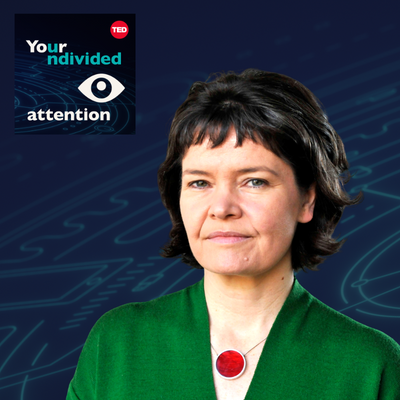Episode 47 | Feb 10, 2022
How Science Fiction Can Shape Our Reality with Kim Stanley Robinson
The meta-crisis is so vast: climate change, exponential technology, addiction, polarization, and more. How do we grasp it, let alone take steps to address it?
One of the thinking tools we have at our disposal is science fiction. To the extent that we co-evolve with our stories, science fiction can prepare us for the impending future — and empower us to shape it.
This week on Your Undivided Attention, we're thrilled to have one of the greatest living science-fiction writers — Kim Stanley Robinson. His most recent novel is The Ministry for the Future, a sweeping epic that reaches into the very near future, and imagines what it would take to unite humanity and avoid a mass extinction. Whether or not you've read the book, this episode has insights for you. And if this episode makes you want to read the book, our conversation won't spoil it for you.
Clarification: In the episode, Robinson refers to philosopher Antonio Gramsci's "pessimism of the intellect, optimism of the will." This phrase was originally said by novelist and playwright Romain Rolland. Gramsci made the phrase the motto of his newspaper, because he appreciated its integration of radical intellectualism with revolutionary activism.
Major Takeaways
Our conversation with Kim Stanley Robinson references many useful concepts, which are worth defining:
~Hyperobject — philosopher Timothy Morton's term for a phenomenon that's so vast, it's beyond human comprehension, like the climate crisis
~Structure of feeling — literary critic Raymond Williams' term for cultural norms, or what members of a culture agree is normal
~Overton window — the spectrum of political ideas that are considered acceptable by the general public at a given time
~Capitalist Realism — the notion that capitalism is the only viable economic system, and that there's no imaginable alternative
~Carbon quantitative easing – quantitative easing is when the central bank (in the US, the Federal Reserve) uses its financial tools to stimulate the economy in order to increase the money supply and encourage lending and investment. Carbon quantitative easing would mean directing newly-created money towards de-carbonization efforts.
Science fiction can prepare us for the impending future, and enable us to change it. In Robinson’s words, "that's what the novel is for" — for constructing meaning, which we can then use to shape reality.
Robinson sees our current moment as analogous to WWII. Nations took swift and radical action — for example, the British Treasury seized the Bank of England — which is precisely what he believes is called for in the face of climate change.
The Ministry of the Future paints a grim image of climate consequences, but is also full of potential solutions — from pumping seawater to the Antarctic ice shelf in order to slow sea-level rise, to switching the global currency to a carbon coin in order to incentivize the carbon sequestration.
Other recommended reading
Robinson's latest novel and the subject of our conversation — which reaches into the near future, and imagines what it would take to unite humanity and avoid a mass extinction
A Deeper Dive Into the Meta Crisis
CHT's blog post about the meta-crisis, which includes the fall of sense-making and the rise of decentralized technology-enabled power
The project based on E. O. Wilson's proposal to conserve half the land and sea — in order to safeguard the bulk of biodiversity, including ourselves
Global tech worker community mobilizing the technology industry to face the climate crisis

